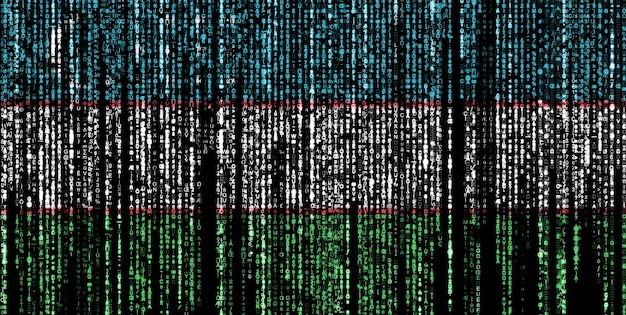New Sanctions Hit Foreign Cyberattackers: What You Need to Know

Breaking: New Sanctions Imposed on Foreign Entities Accused of Cyberattacks are designed to deter malicious cyber activities, safeguard critical infrastructure, and protect the integrity of digital communications by targeting those responsible for cyber threats.
In a decisive move to combat the rising tide of cyber warfare, the United States has announced breaking: new sanctions imposed on foreign entities accused of cyberattacks. This action underscores the country’s commitment to protecting its digital assets and holding perpetrators accountable for their malicious activities.
Understanding the New Sanctions on Cyberattackers
The recent imposition of sanctions on foreign entities accused of cyberattacks marks a significant escalation in the US government’s efforts to deter and punish cybercrime. These sanctions aren’t just symbolic; they carry real-world consequences for those targeted.
What are Cyber Sanctions?
Cyber sanctions are economic and legal penalties imposed by a government on individuals, organizations, or even entire countries believed to be involved in cyberattacks. These sanctions can range from asset freezes to travel bans and restrictions on conducting business with US companies or individuals.
Why are These Sanctions Important?
The importance of these sanctions lies in their ability to disrupt and deter future cyberattacks. By targeting the financial and operational capabilities of cybercriminals, the US aims to make cybercrime less profitable and more risky.
- Deterrence: Sends a message to potential attackers that their actions will have consequences.
- Disruption: Limits the ability of sanctioned entities to carry out further attacks.
- Accountability: Holds perpetrators responsible for their actions.
- Protection: Helps safeguard critical infrastructure and sensitive data.
These sanctions represent a proactive approach to cybersecurity, aiming not only to punish past offenses but also to prevent future ones. By leveraging its economic and legal power, the US is sending a clear message that it will not tolerate malicious cyber activity.

Entities Targeted by the New Sanctions
The scope of the breaking: new sanctions imposed on foreign entities accused of cyberattacks is broad, targeting a range of actors involved in different types of malicious cyber activities. Understanding who these entities are and what they’ve been accused of is crucial to grasping the full impact of the sanctions.
Who is Being Sanctioned?
The entities targeted by these sanctions include individuals, organizations, and even government agencies believed to be involved in cyberattacks. These actors may be based in various countries around the world, reflecting the global nature of cybercrime. Some examples of entities that might be targeted include state-sponsored hacking groups, individual hackers, and companies that provide tools or services used in cyberattacks.
What are the Accusations?
The accusations against these entities typically involve a range of cybercrimes, including hacking, data theft, ransomware attacks, and spreading disinformation. These activities can have far-reaching consequences, affecting businesses, governments, and individuals alike.
- Cyber espionage: Stealing sensitive information from businesses or governments.
- Ransomware attacks: Holding data hostage for ransom.
- Disinformation campaigns: Spreading false information to manipulate public opinion.
- Disrupting critical infrastructure: Targeting essential services like power plants or hospitals.
The sanctions emphasize that no actor, regardless of their affiliation or location, is immune from consequences for engaging in malicious cyber activities. This is a significant step towards creating a more secure digital environment for everyone.
The Impact of Sanctions on Targeted Entities
The practical implications of the breaking: new sanctions imposed on foreign entities accused of cyberattacks can be far-reaching and severe. These sanctions are designed to disrupt the operations of targeted entities and limit their ability to engage in future cybercrimes.
Financial and Economic Consequences
One of the most immediate impacts of sanctions is the financial and economic consequences they impose. Sanctioned entities may have their assets frozen, preventing them from accessing funds or conducting transactions. They may also be barred from doing business with US companies or individuals, further limiting their economic opportunities.
Reputational Damage
In addition to financial consequences, sanctions can also cause significant reputational damage. Being publicly identified as a cybercriminal can harm an entity’s credibility and make it difficult to attract customers or partners. This reputational damage can have long-lasting effects, even after the sanctions are lifted.
Operational Disruptions
Sanctions can also disrupt the operations of targeted entities by limiting their access to technology, software, and other resources. This can make it more difficult for them to carry out cyberattacks or engage in other malicious activities. The goal is to make cybercrime a less attractive and more challenging endeavor.
By combining financial penalties, reputational damage, and operational disruptions, sanctions aim to create a comprehensive deterrent against cybercrime. The hope is that these measures will discourage individuals and organizations from engaging in malicious cyber activities in the first place.

Legal Framework and International Cooperation
The imposition of sanctions relies on a complex legal framework and often requires international cooperation to be truly effective. Understanding the legal basis for these sanctions and the role of international partnerships is essential to appreciating their full impact.
Legal Basis for Sanctions
The US government has several legal authorities it can use to impose sanctions on foreign entities accused of cyberattacks. These authorities include executive orders issued by the President, as well as laws passed by Congress. These legal frameworks provide the government with the power to target individuals, organizations, and even countries that engage in malicious cyber activities.
The Role of International Cooperation
International cooperation is crucial to the success of sanctions programs. When countries work together to impose sanctions, they can create a more unified and effective deterrent against cybercrime. This cooperation can take the form of information sharing, joint investigations, and coordinated sanctions actions.
The global nature of cybercrime means that no single country can effectively combat it alone. By working together, nations can pool their resources and expertise to identify, track, and prosecute cybercriminals. International cooperation is essential to ensuring that cyberattacks are met with a coordinated and robust response, making it more difficult for cybercriminals to operate with impunity.
Potential Challenges and Criticisms of Cyber Sanctions
While cyber sanctions can be a powerful tool for deterring cybercrime, they also face certain challenges and criticisms. It’s important to acknowledge these limitations in order to have a balanced understanding of the effectiveness of sanctions.
Difficulties in Attribution
One of the biggest challenges in imposing cyber sanctions is accurately attributing cyberattacks to specific individuals or organizations. Cyberattacks can be difficult to trace, and attackers often take steps to conceal their identities. This can make it challenging to gather the evidence needed to justify sanctions.
Circumvention Tactics
Sanctioned entities may also try to circumvent sanctions by using shell companies, aliases, or other tactics to hide their activities. This can make it difficult to enforce sanctions and prevent targeted entities from continuing to engage in cybercrime.
- Use of cryptocurrency: Facilitates anonymous transactions.
- Operating from safe havens: Countries with lax cybersecurity laws.
- Developing sophisticated malware: Obfuscates the source of attacks.
Despite these challenges, sanctions remain a valuable tool for combating cybercrime. By staying vigilant and adapting their strategies, governments can overcome these obstacles and continue to use sanctions effectively. Moreover, efforts to improve international cooperation and strengthen cybersecurity defenses can further enhance the impact of sanctions.
The Future of Cyber Sanctions and Cybersecurity
As cyber threats continue to evolve, so too must the strategies used to combat them. The future of cyber sanctions and cybersecurity is likely to involve a combination of new technologies, stronger international cooperation, and more proactive approaches to defending against cyberattacks.
Emerging Technologies
Emerging technologies such as artificial intelligence (AI) and machine learning (ML) could play a significant role in enhancing cybersecurity. AI and ML can be used to detect and respond to cyberattacks more quickly and effectively, as well as to identify and track cybercriminals.
Proactive Cybersecurity Measures
In addition to sanctions, proactive cybersecurity measures are essential to protecting against cyberattacks. These measures include strengthening cybersecurity defenses, improving information sharing, and educating individuals and organizations about cyber threats.
These sanctions represent a significant step forward in the fight against cybercrime. By continuing to adapt and innovate, governments can stay ahead of cybercriminals and create a more secure digital environment for everyone.
| Key Point | Brief Description |
|---|---|
| 🛡️ Cyber Sanctions | Economic and legal penalties imposed on cyberattackers. |
| 🎯 Targeted Entities | Individuals, organizations, and governments involved in cybercrime. |
| 🌐 International Cooperation | Essential for effective sanctions and combating global cyber threats. |
| ⚖️ Legal Framework | Sanctions based on executive orders and congressional laws. |
Frequently Asked Questions
▼
The main goals are to deter cyberattacks, disrupt the operations of cybercriminals, hold perpetrators accountable, and protect critical infrastructure and sensitive data. They aim to reduce the profitability and increase the risk of engaging in cybercrime.
▼
Targets include individuals, organizations, and government agencies involved in cyberattacks, such as state-sponsored hacking groups, individual hackers, and companies providing tools used in cybercrimes. Sanctions aim to target anyone involved in malicious cyber activities.
▼
Sanctioned entities may face asset freezes, travel bans, restrictions on doing business with US companies, and reputational damage. These measures disrupt their operations and limit their ability to engage in future cybercrimes.
▼
International cooperation is crucial for effective sanctions. It involves information sharing, joint investigations, and coordinated sanctions actions among countries to combat global cyber threats and ensure a unified response to cybercrime.
▼
Challenges include difficulties in accurately attributing cyberattacks, the use of circumvention tactics by sanctioned entities, and the need for strong legal frameworks and international cooperation to effectively enforce sanctions.
Conclusion
The imposition of breaking: new sanctions imposed on foreign entities accused of cyberattacks represents a crucial step in the ongoing battle against cybercrime. While challenges remain, these sanctions, combined with proactive cybersecurity measures and international cooperation, offer a powerful means of deterring malicious cyber activities and safeguarding the digital landscape.





